
Rotary Valves: Solution for Powder Flow Control in Hoppers
Rotary Valves: Solution for Powder Flow Control in Hoppers
Rotary Valves
Rotary valves are devices widely used across various industries, including chemicals, APIs, foods, steel, batteries, and others. They serve as essential components for precisely controlling the flow of materials, particularly powders and granular substances, within various processing systems. These valves play a critical role in ensuring seamless material flow within powder transfer systems. Their reliable operation enabling controlled discharge, thereby ensuring smooth operations, increased productivity, and reproducibility.
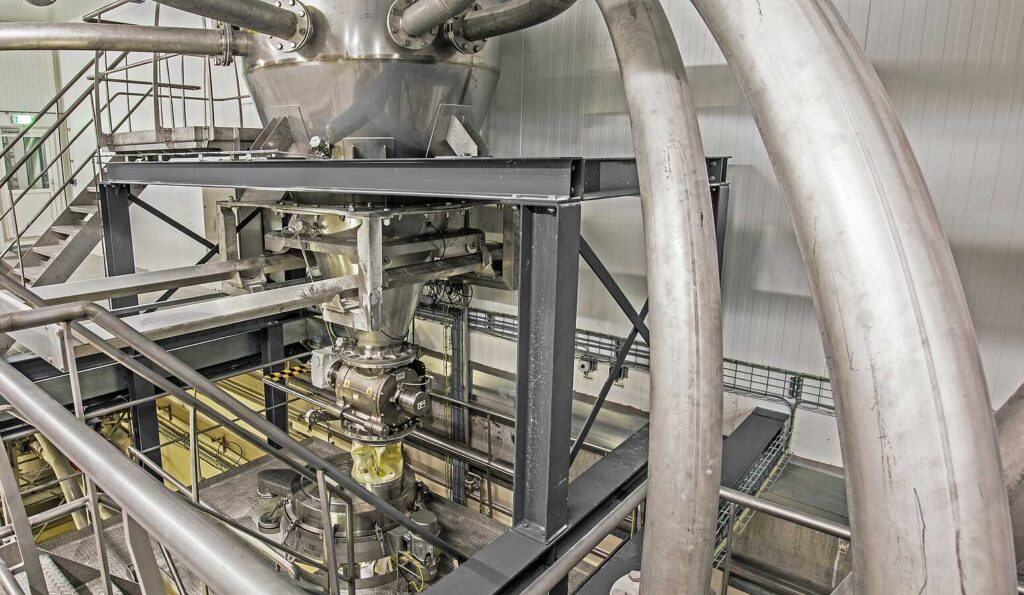
In India, selecting the appropriate type of rotary valve is crucial for your production needs. Properties like adhesiveness and cohesiveness can significantly impact operations, causing downtime and hindering your production goals.
If you are looking for a rotary airlock valves manufacturers, Aishin stands out as a leading choice. With manufacturing facilities not only in Japan but also in Thailand, China, and India, Aishin supplies various types of rotary airlock valves in India and globally for wide range of applications.
What are Rotary Valves?
Rotary valves, also known as rotary feeders or rotary airlocks, are devices that control the flow of bulk materials like powders, pellets, and granules between various stages of a processing system. They are made up of a cylindrical housing with an internal rotating rotor. The rotor often contains multiple blades or vanes that form a seal between the valve’s inlet and outlet.
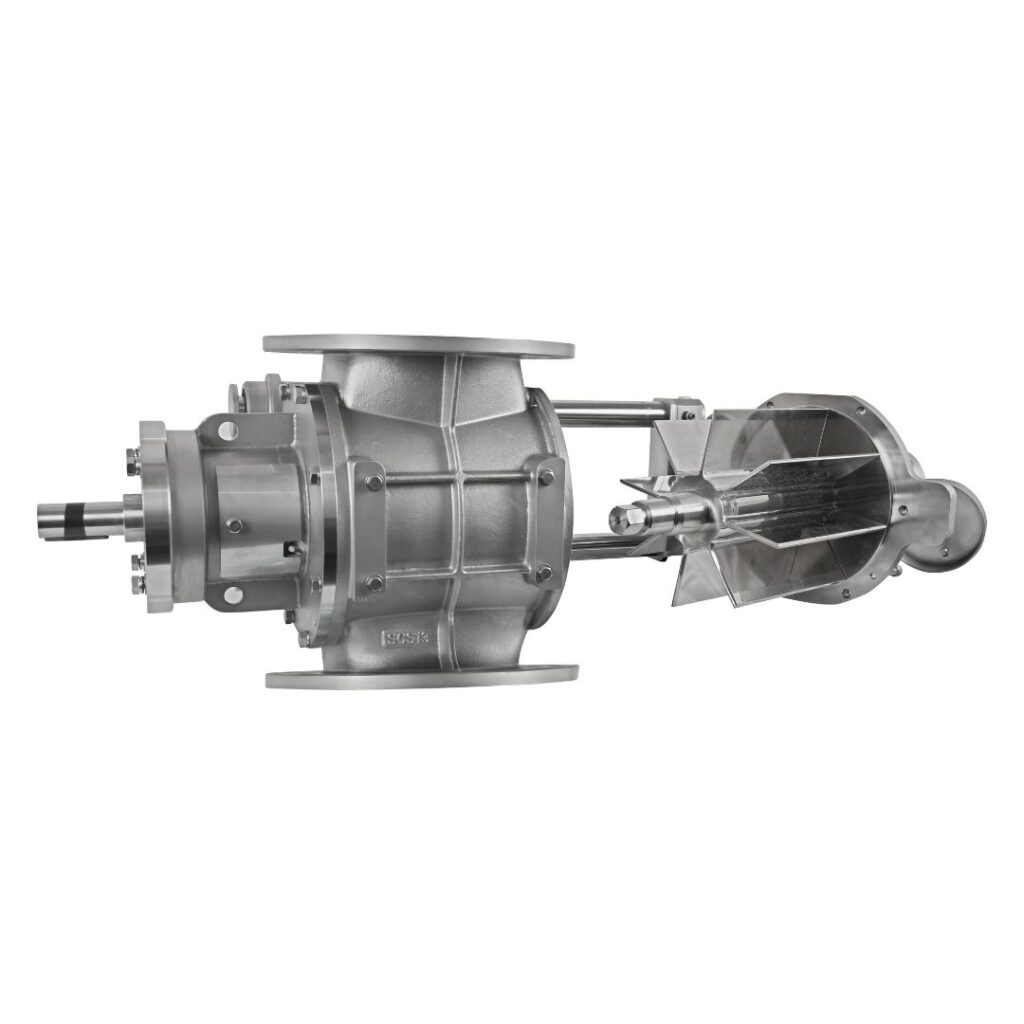
Why is it important for Industries?
Rotary valves are essential components in a wide range of industrial processes. This equipment is important for various reasons. It efficiently handles bulk substances to prevent spillage, dust dispersion, and contamination during transfer. This is particularly crucial for companies dealing with sensitive or hazardous chemicals. Rotary valves also aid in precise material metering and dosing, enhancing process control. Consequently, production processes become more consistent and reliable, leading to quality products.
One of the primary reasons why rotary airlock valves are widely used in industrial settings is their ability to maintain a secure environment while delivering control discharge, especially when integrated into systems operating under negative pressure, like hoppers. When it comes to discharging materials from a hopper, maintaining a steady flow rate is essential for optimizing the production process. Using alternative valve types in such cases could result in air leakage due to the negative pressure inside the hopper, which could disrupt material flow and introduce inconsistencies into the production process.
The valves are designed to effectively address this specific challenge by creating an airtight seal, preventing air from entering the hopper and ensuring a consistent material flow. This not only improves the efficiency of material transfer but also reduces the risk of contamination and dust dispersion. This is particularly important in industries where maintaining product quality and safety are top priorities.
Material Inlet: Material enters the rotary valve through a connected hopper, conveyor, or source, ensuring controlled material entry.
Sealing: As the rotor rotates, its blades create a crucial seal between the inlet and outlet, limiting air leakage and maintaining essential pressure differentials.
Material Discharge: Rotor blades facilitate material movement within the valve, efficiently discharging it into the next phase of the process for seamless material flow.
Rotor Speed: Precisely adjustable rotor speed controls material release, ensuring precision in metering/mixing and dosing for consistent production accuracy.
Cleaning and Maintenance: Rotary valves are designed for easy maintenance, with removable rotor assemblies, minimizing downtime and enhancing reliability.
Features
- High precision equipment.
- Casted rotary valves.
- Clearance < 0.15 mm.
- Reduced air leakage due to low clearance.
- Excellent performance with pressure sealing.
- Gear motor is provided to rotate the rotor.
Benefits
- Precise material transfer.
- Maintain pressure differentials.
- Prevent backflow.
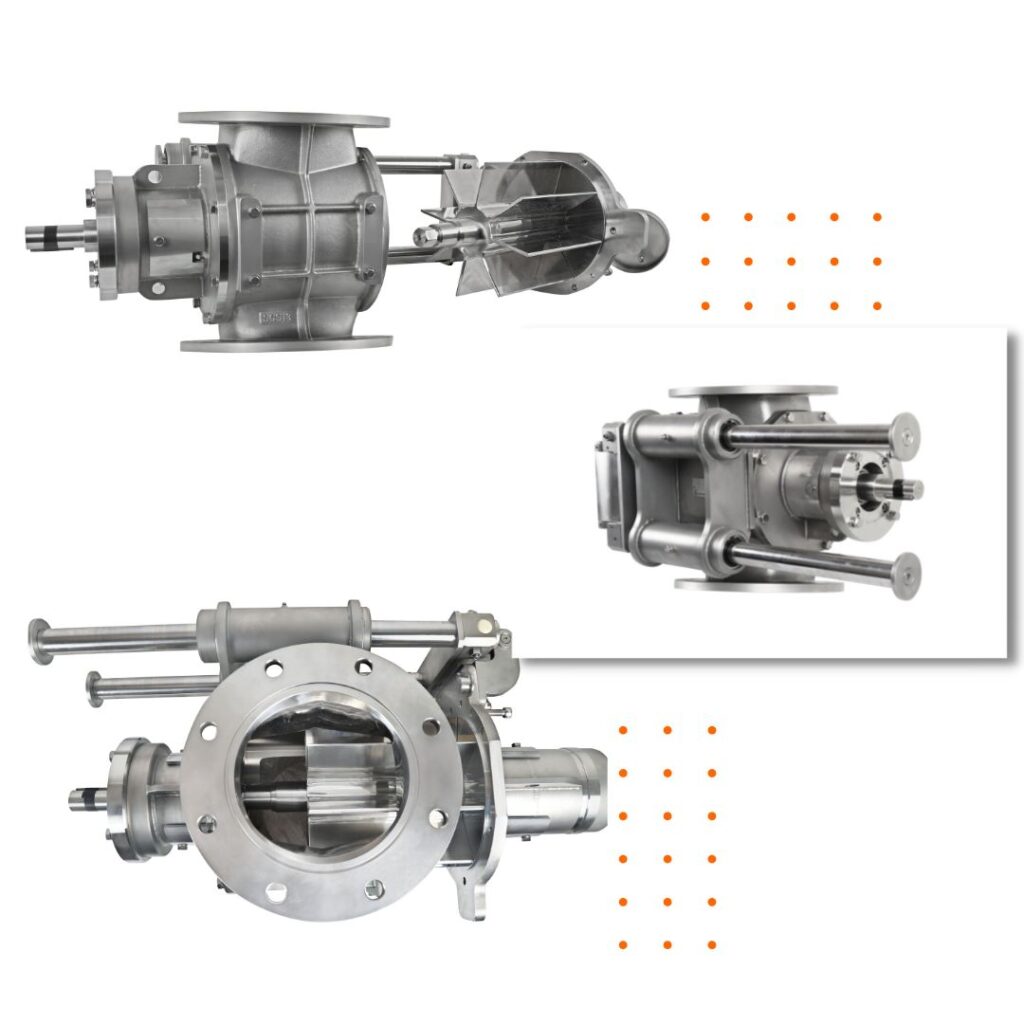

- High precision equipment
- Casted rotary valves
- Clearance < 0.15 mm
- Reduced air leakage due to low clearance.
- Excellent performance with pressure sealing
Applications






- Chemical,
- Secondary battery,
- Food items,
- Drugs,
- Automobile,
- Ceramic,
- Rubber products,
- Metal, Steel & Iron manufacturing,
- Fiber and paper manufacturing,
- Plant food,
- Feed materials,
- Material recycling,
- All other general powders
- Chemical,
- Secondary battery,
- Food items,
- Drugs,
- Automobile,
- Ceramic,
- Rubber products,
- Iron manufacturing,
- Steel manufacturing,
- Metal,
- Fiber and paper manufacturing,
- Electronic material,
- Plant food,
- Feed stuff,
- Material recycling,
- All other general powders
Rotary Valve Types
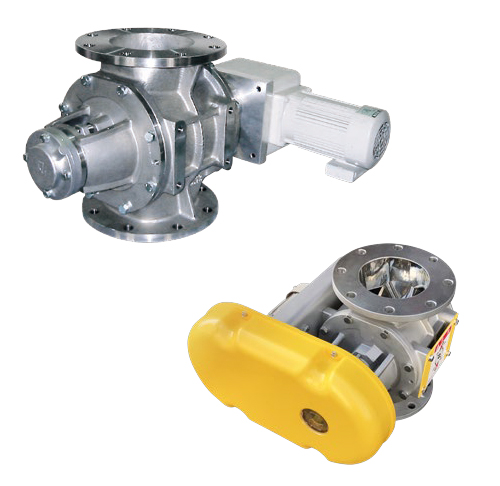
Standard Rotary Valve
A standard type rotary valve, typically referred to simply as a rotary valve, is a mechanical device used in a variety of industries to control the flow of powder between various components of a processing system.
- Demonstrates excellent performance due to pressure seal
- Fixed quantity supply is possible
- Safety measures considered
- Robust and best in durability
Sanitary Rotary Valve
Commonly used in the food and pharmaceutical industries, these valves are designed for easy cleaning and sterilization.
- Quick and Easy assembly/disassembly reducing cleaning time
- Available in sizes from 50-300mm
- A total of 6000 units sold
- Supports GMP, HACCP, and CIP
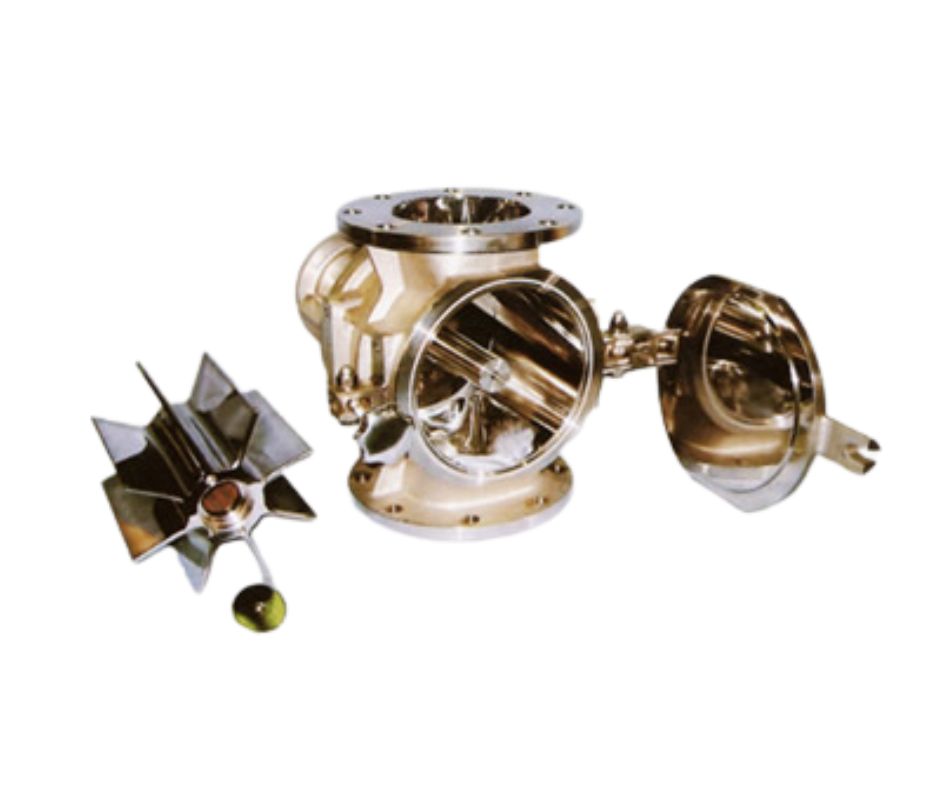

Sanitary Rotary Valve
Commonly used in the food and pharmaceutical industries, these valves are designed for easy cleaning and sterilization.
- Quick and Easy assembly/disassembly reducing cleaning time
- Available in sizes from 50-300mm
- A total of 6000 units sold
- Supports GMP, HACCP, and CIP
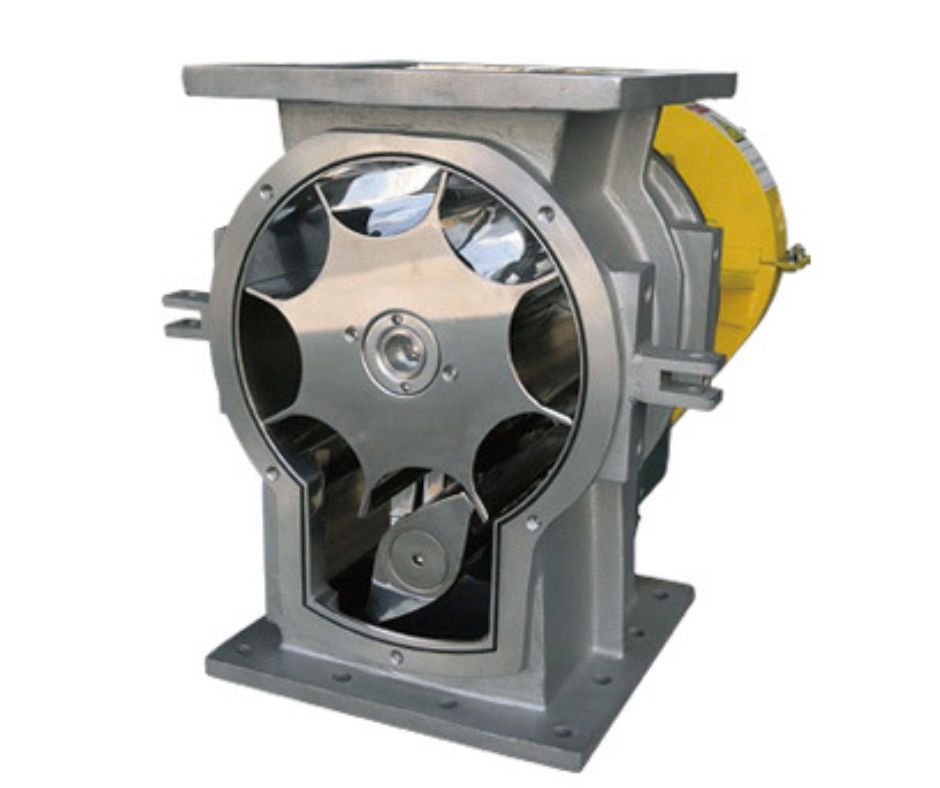
Scraper Type Rotary Valve
A rotary valve with a scraper is a practical solution for ensuring material flows smoothly and without interruptions. This specialized valve prevents material blockages and enhances performance, making it ideal for handling fine powders and sticky products in pneumatic conveying lines. With its built-in scraper mechanism, it minimizes downtime and keeps material flowing smoothly.
- Suitable for placing in Pneumatic conveying application.
- Blows air through the rotor to prevent adhesion of bulk materials
- Wide range of Products from 150-500mm diameter
- The sanitary version available for easy cleaning
Blow through type
Designed for pneumatic conveying systems, these valves maintain pressure differentials while transferring materials. A blow-through valve is a useful tool in various industries such as food processing, chemical manufacturing, and bulk material handling. It’s specially designed for applications where you need to transfer granules or powdered materials into a pneumatic conveying line.
Rotary Valve for Pneumatic Conveying
- As air flows through rotor blades, less adherence of powder and granules
- The low floor design is possible depending on the transfer pipe assembly
- Line-up of sanitary type as well (Dismantling, and cleaning is easy)
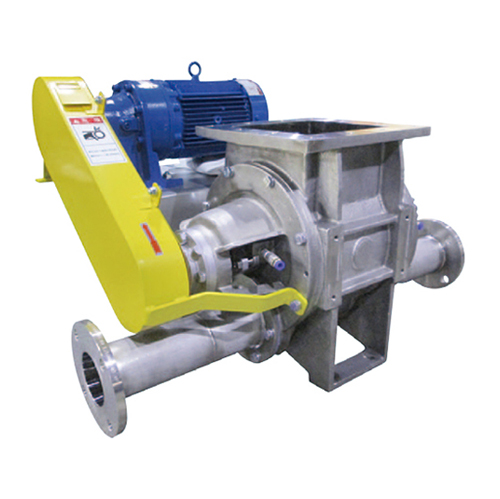

Blow through type
Designed for pneumatic conveying systems, these valves maintain pressure differentials while transferring materials. A blow-through valve is a useful tool in various industries such as food processing, chemical manufacturing, and bulk material handling. It’s specially designed for applications where you need to transfer granules or powdered materials into a pneumatic conveying line.
Rotary Valve for Pneumatic Conveying
- As air flows through rotor blades, less adherence of powder and granules
- The low floor design is possible depending on the transfer pipe assembly
- Line-up of sanitary type as well (Dismantling, and cleaning is easy)
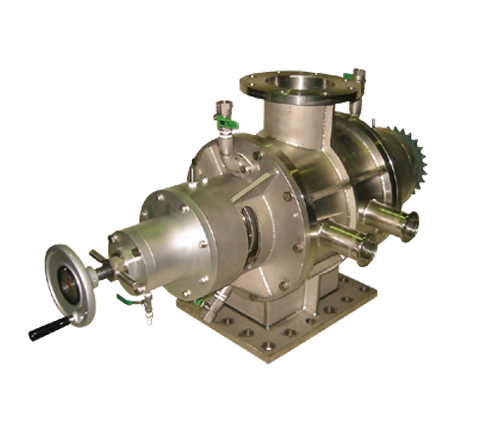
High Temperature and
High Pressure type
- For use at high temperature
- Water-cooled jacket for casing, cover, and bearing section.
- Gland packing and bearing to withstand high temperature.
- Heat insulator mount attached.
- Reducer protector attached.
- Optimum for steam sterilizer
- Used in high temperature high pressure transfer etc by Compressor

High Temperature and High Pressure type
- Insulation material attached with seat accessory
- Can also be compatible with steam sterilizer
- Used in high temperature high pressure transfer etc by compressor
- Selection by matching the usage conditions with clearance, shaft seal structure etc.
Dust collector type - AREX Series
- Suitable for dust collector discharge
- Fulfillment of high quality and less price
- Compact and simple structure
- Robust and made of ductile cast iron
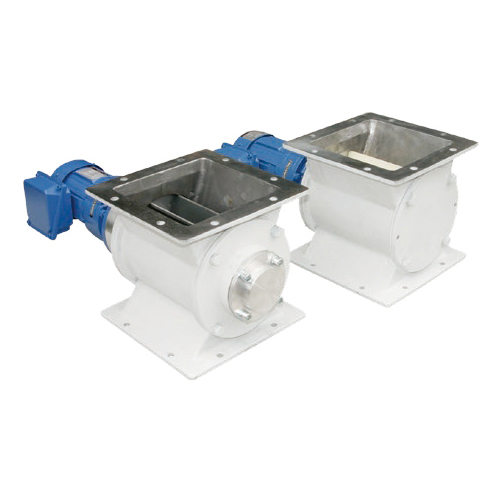

Dust collector type - AREX Series
- Suitable for dust collector discharge
- Fulfillment of high quality and less price
- Compact and simple structure
- Robust and made of ductile cast iron
Efficient Powder Handling: Our Proficiency and Experience
F.A.Q.
Have any Question?
Rotary airlock valves are commonly used in pneumatic conveying systems, bulk material handling, and industrial processing applications where material flow control and pressure differential are crucial.
Proper installation, maintenance, and selecting the right type of rotary valve with suitable seals and clearances can help prevent leakage.
Rotary valves are ideal for handling powdered materials because they provide a reliable and controlled flow of fine particles. They prevent material backflow and ensure consistent feeding into downstream processes, making them crucial in industries such as food, pharmaceuticals, and chemicals.
Rotary valves are essential components in pneumatic conveying systems. They maintain the airlock between the high-pressure conveying line and the low-pressure receiving hopper, preventing backflow of air and maintaining a consistent material flow. They also aid in metering and controlling the discharge of materials into the conveying line.
“Rotary valve” and “rotary airlock valve” are often used interchangeably. Both terms refer to the same type of valve used for regulating material flow and maintaining air or gas seals.
Rotary valves play a crucial role in industrial processing by ensuring consistent material flow, preventing air leakage and maintaining pressure differentials, handling a wide range of materials (including powders, granules, and pellets), reducing the risk of material contamination in sanitary applications, and contributing to process efficiency and product quality in various industries such as pharmaceuticals, chemicals, food and APIs.
